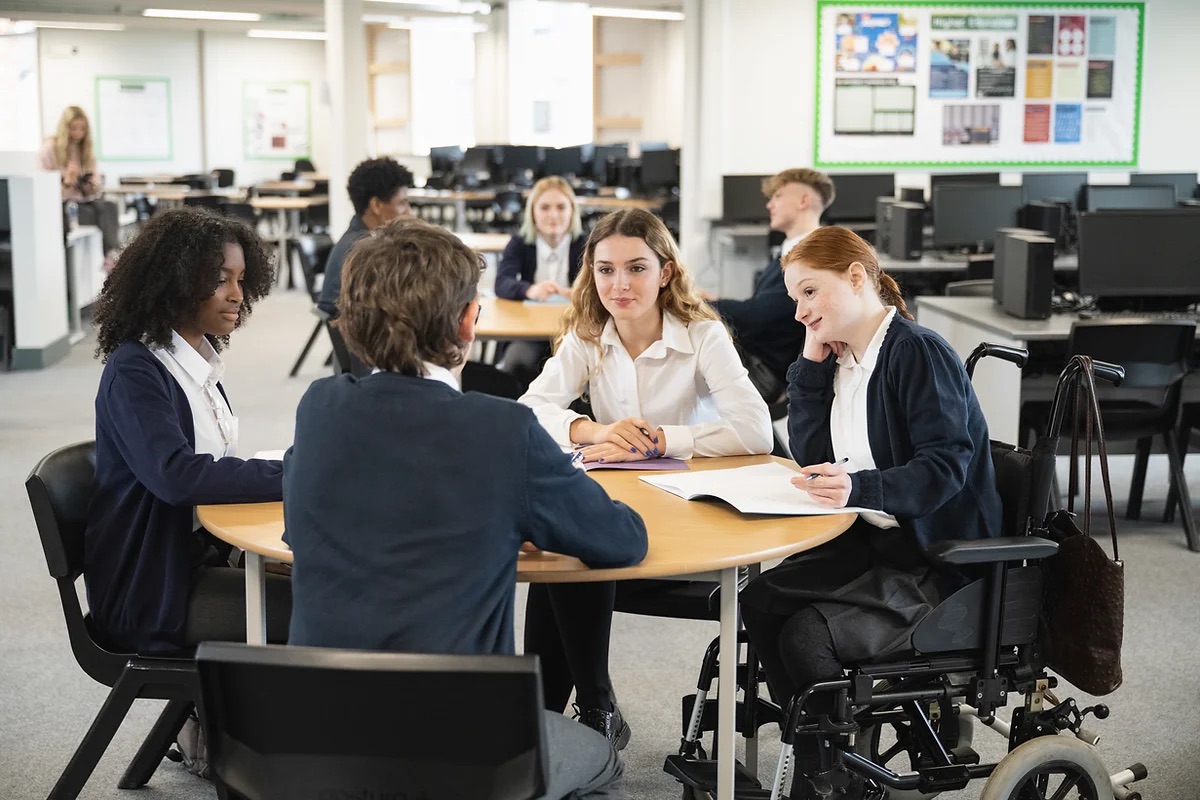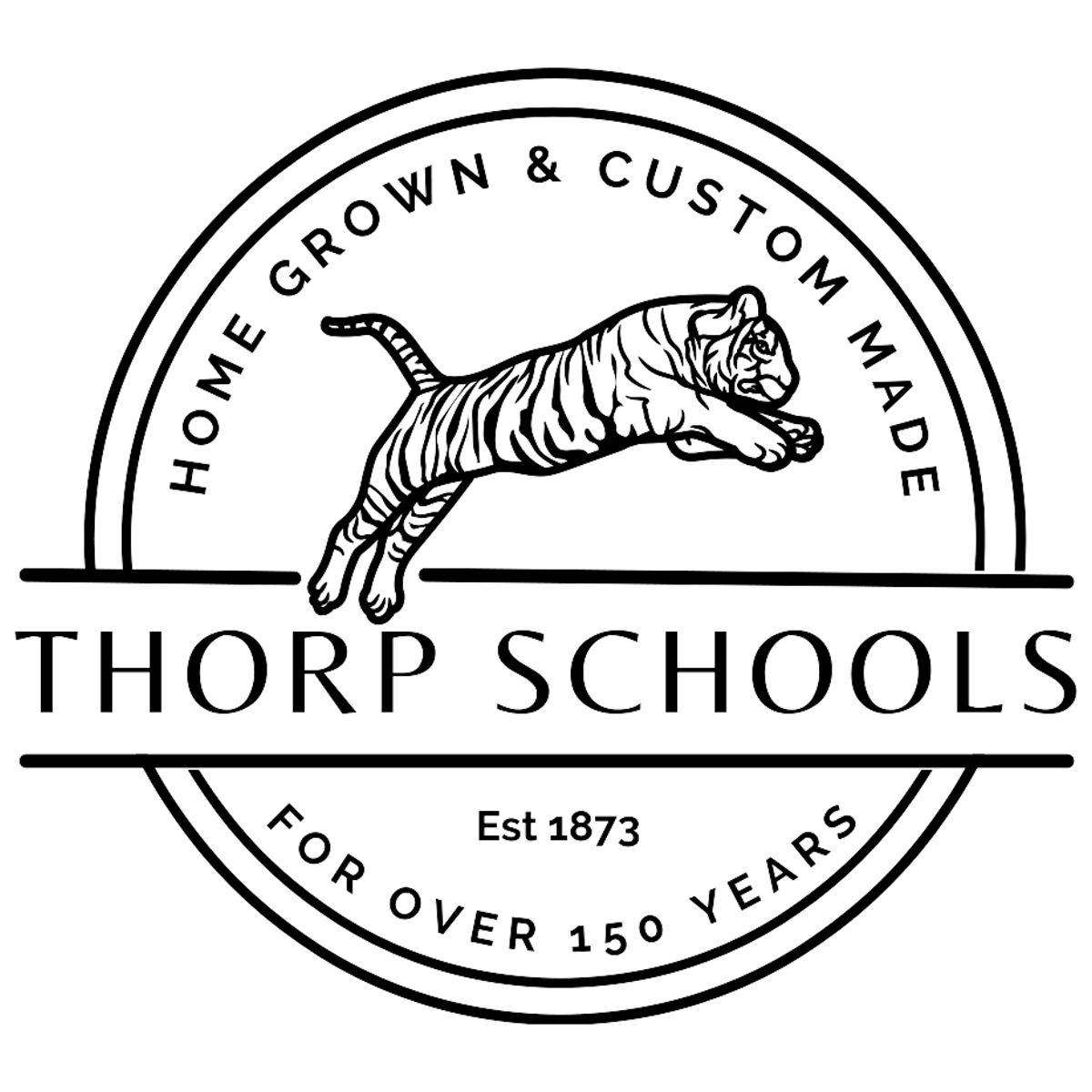Special Education

Thorp School Special Education strives to provide students with special needs an inclusive and supportive learning environment where they can grow and thrive as they become prepared for their next steps in education, work and life.
What is Special Education?
Special Education programs ensure that students with disabilities have access to free and appropriate public education, fulfilling the requirements of the Individuals with Disabilities Education Act (IDEA).
Special Education Frequently Asked Questions
Key Definitions:
IDEA: Individuals with Disabilities Education Act is a federal law that ensures that eligible students with disabilities are provided with a free and appropriate education and related services. IDEA Part C ensures infants and toddlers, Birth through age 2 with disabilities, are provided with early intervention services. IDEA Part B ensures children and youth ages 3 through 21 receive special education and related services.
FAPE: Stands for Free and Appropriate Public Education, which is defined in Section 504 of the Rehabilitation Act of 1973, and protects children with disabilities’ right to an education. The law states that “In general, all school-age children who are individuals with disabilities as defined by Section 504 and IDEA are subject to FAPE” (U.S. Department of Education, Office for Civil Rights, Free Appropriate Public Education for Students With Disabilities: Requirements Under Section 504 of the Rehabilitation Act of 1973, Washington, D.C., 2010)
Specifically, FAPE means special education and related services that are available to all children with disabilities in a state that:
are provided at public expense, under public supervision and direction, and without charge;
meet the standards of the state educational agency (SEA);
include an appropriate preschool, elementary school, or secondary school in the state; and
are provided in conformity with the Individualized Education Program established for the child.
LRE: Least Restrictive Environment refers to the setting that best suits a student with disabilities. Students must be allowed in the general education classroom and access to time with same age peers without disabilities, to the maximum extent possible and when appropriate. A reduction in this time must be justified by the child’s individual disability-related needs.
Special Education Services:
What if I think my child might need special education services?
Children Birth through 2: If a family has concerns about their development can contact Children’s Village to receive an assessment and information about available services that their child may qualify for.
Children 3 and Up: If a family has concerns about their development can contact the office at (509)964-2107 to schedule an appointment with our Special Education Director, Mel Blair to discuss whether their child should be referred to a Special Education Guidance Team. The guidance team that usually includes the child’s parents, teacher(s), special education teacher, and school district representative will meet to determine if there is cause to do an evaluation of the student. If the team determines an evaluation is necessary, and the parent consents, the student will then be assessed by designated services providers.
What happens if my child is evaluated and does qualify for Special Education?
Once an evaluation has been completed, the students’ team will reconvene to discuss whether or not the student does in fact qualify for special education services. If they do qualify, an Individualized Education Plan (IEP) will then be developed by a team that includes the parents, teachers, service providers and special education staff.
Students are re-evaluated on a 3-year basis, while IEPs are reviewed annually.
IEP: If a child qualifies for Special Education under the WACs, then an Individualized Education Plan, or IEP is developed based on the current evaluation, and is designed by a student’s teachers, specialists, parents, and related service providers, that addresses how the child will receive their free and appropriate public education. The IEP includes the LRE plan, and how much of the child’s time will be spent in the least restrictive environment. The IEP also describes the child’s academic, social and functional performance goals and how the goals will be measured. It also states what type of special education and related services the child needs, as well as accommodations for the child’s instruction and assessments.
What happens if my child is evaluated and does not qualify or the Guidance Team does not believe that they need to be evaluated?
Students with disabilities do not always require special education services to be successful, and other students may not have all the qualifications necessary to be considered as having a disability. If you have concerns regarding your student’s learning, we encourage you to reach out to your child’s teacher to discuss options, like Learning Assistance Programs, or Title 1 Programs, that give students extra support in subjects like math and reading. You can also reach out to our Special Education Director, Mel Blair, to discuss learning options, or if you believe there is a disagreement about the result of the evaluation.
What types of services are provided for students with disabilities?
Thorp School works to connect students with disabilities with a variety of services. Our staff includes a contracted Speech and Language Pathologist (SLP) and Speech and Language Pathologist Assistant (SLPA), as well as Occupational Therapist and Certified Occupational Therapist Assistant (COTA), and School Psychologists. If necessary, the School also contracts with our Education Service District 105 (ESD 105) to provide specialists and materials for students with Autism, and students with vision and orientation/mobility disabilities. We also work with the Division of Vocational Rehabilitation - Ellensburg and People for People, to provide transition assistance to students in high school.
Section 504:
Section 504 of the Rehabilitation Act of 1973 is a federal civil rights law that prohibits discrimination on the basis of disability. The law applies to public elementary and secondary schools and other federally funded institutions. Under Section 504, denying a disabled student a free appropriate public education constitutes disability discrimination.
In a school setting, Section 504 applies to students who:
have a physical or mental impairment that substantially limits one or more major life activities and;
because of the disability, require accommodations, special instruction, and/or services in order to participate in and/or benefit from school as adequately as their non-disabled peers.
Title 1/LAP:
Title I Provides financial assistance to states and school districts to meet the educational needs of students at-risk of failing the state’s challenging performance standards in mathematics, reading, and writing. Title I, Part A provides additional instructional services and activities which support students. Title I funds in the Thorp School District serve students in grades TK-5 for reading. Students served are those students, who through multiple measures, have been determined to be at most risk of not meeting state performance standards.
